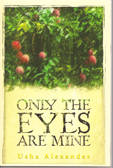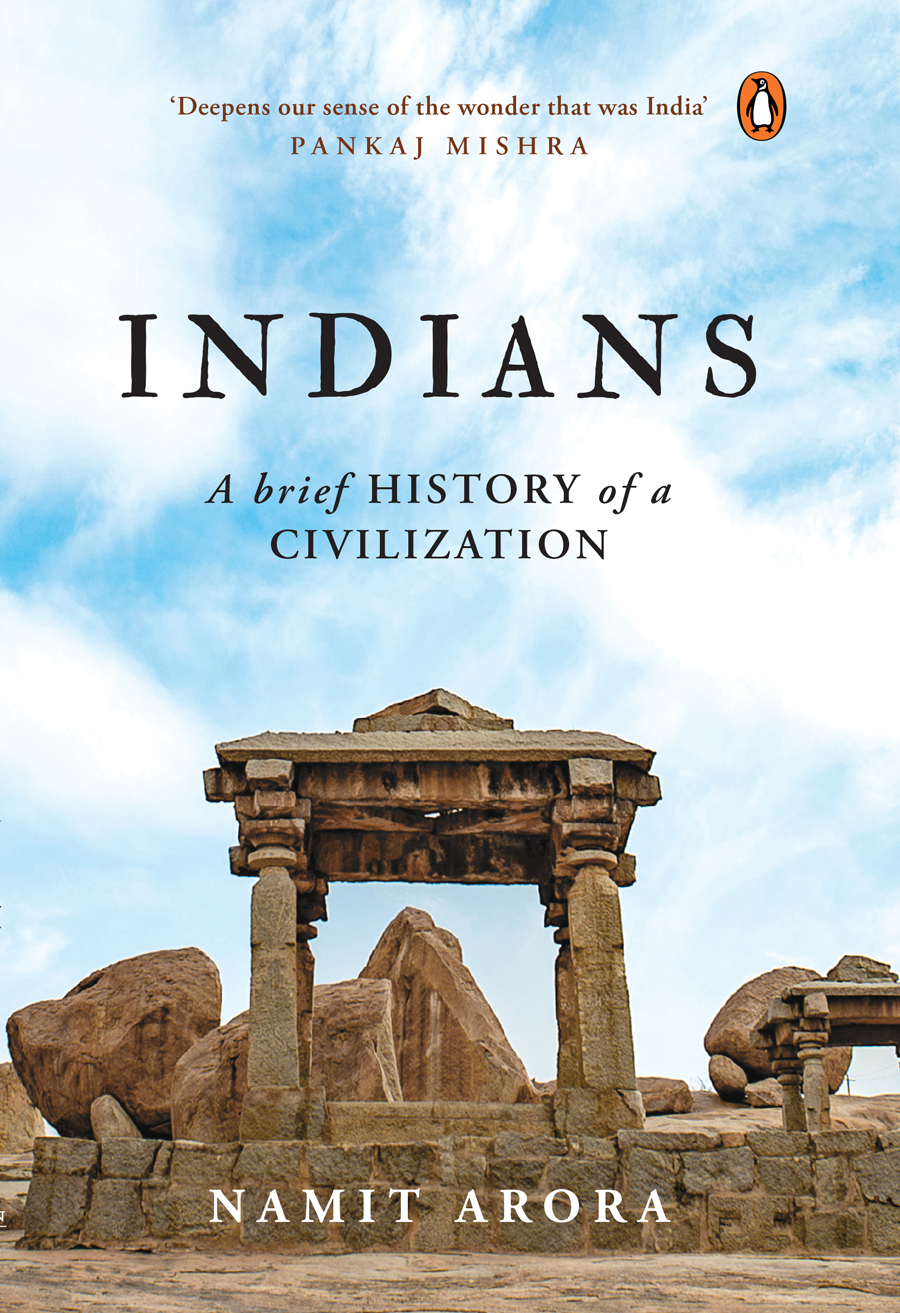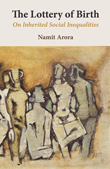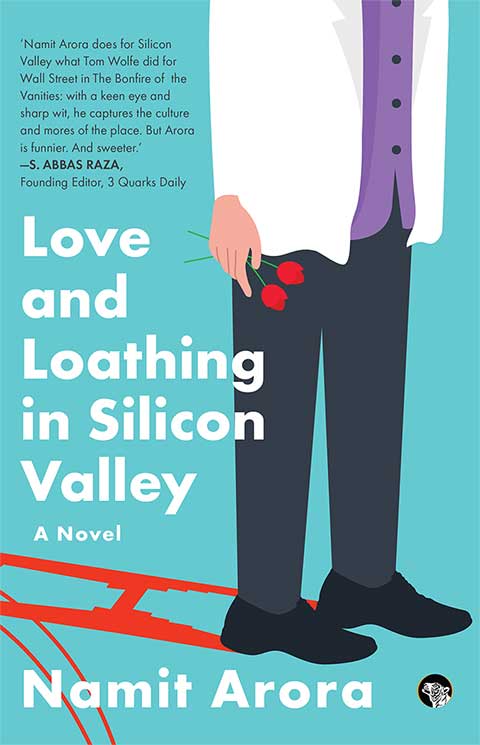| Index of articles from the Blog |
| Animals |
| Anthropology & Archaeology |
| Art & Cinema |
| Biography |
| Books & Authors |
| Culture |
| Economics |
| Environment |
| Fiction & Poetry |
| History |
| Humor |
| Justice |
| Philosophy |
| Photography |
| Politics |
| Religion |
| Science |
| Travel |
Books by
Books by
|
By Namit Arora | Aug 2009 | Comments
The First Philosophy Aristotle described his major work, Metaphysics (not his term for it but of a later editor), as ‘first philosophy’ and called it a study of ‘being qua being’ or ‘the first causes of things.’ In it Aristotle sought to explore the issues that were most fundamental and most general, and which framed all other investigations. Suitably enough, he chose ontology to be the principal subject matter of Metaphysics. Ontology is the study of the nature of being, existence, and reality. It explores the most fundamental of questions: what does it mean to be and to exist; what standards do we use to distinguish what is from what is not; what properties identify a thing; how do we decide whether a thing has merely changed or ceased to exist; what makes something concrete or abstract, real or ideal, independent or dependent; what interrelationships, boundaries, and classifications do we assign to things; do numbers exist; what is the relation between language and reality; and so on.
For instance, many (but not all) ancient Hindus saw reality as a ceaselessly unfolding divine play (lila), with its countless veils of illusion (maya) that duped us into seeing reality in dualistic terms: mind/body, self/other, good/evil, etc. Time was cyclical, not linear. The natural world was not something apart from us—it was inseparable from us. Many Hindus saw their moods and passions reflected in the phenomenal world, which came to bear on the deepest concerns of human life, woven as it was into an intricate web of life. This view of reality was perhaps not the most congenial for scientific inquiry (but it was for practical reason and reflection). Science has flourished where at least a strong sense of the autonomous self, its separateness from the world, and a subject-object schema of analysis have taken hold. Similar examples can be drawn from other traditions. In Aristotle’s day natural philosophers and their modern successors, natural scientists, have also investigated our world. It is worth noting that the basic structures, boundaries, and subject matter of what a scientific field studies also fall out of ontology—that is, scientific domains require pre-scientific ontological concepts (such as energy, force, motion, space, time, etc.) to conduct their investigations, and which allow investigators to both anchor that domain and extract objective facts from it—these concepts are not so much the result of objective facts as their precondition. This is why science is said to have metaphysical foundations, and perhaps why Aristotle called metaphysics the ‘first philosophy.’
Apart from metaphysics, many other philosophical questions seem impervious to science: how to live, what to aspire to; how to think about justice, ethics, and beauty; how to cope with that nameless anxiety we often feel in the gut; what ideals to prefer: liberty or order, pleasure or virtue, self or others, observation or action, temporal or spiritual, apathy or care, pessimism or optimism, self-effacement or self-assertion. Philosophy tackles all these and other ‘ought’ questions, becoming a larger inquiry in light of the sciences and in light of everyday experiences. As in ancient Greece, the role of philosophy is to bridge the gap between knowledge and wisdom. Objective Truths and Science Modern science is often identified with the scientific method, but it’s less clear what that means. Science has no unique methodology, says Karl Popper, who sees science as one of many human activities concerned with problem solving. What then demarcates science from non-science, such as logic, metaphysics, or psychoanalysis? Like Hume, he rejects inductive verification (e.g., lab testing) as a criterion, replacing it with falsifiability—i.e., a theory is scientific only if it can be refuted by empirical observations—while admitting that this too is not sufficient to separate science from non-science (e.g., is String theory falsifiable?). Further, theories are never proven true, only held as provisionally true until falsified. We may prefer theories that have survived the test of time, but only our reasoning, and not a method, provides the grounds for retaining a theory as plausible, such as our estimation of its explanatory force and predictive power. Moreover, saying that a theory is non-science is not necessarily to say that it is unenlightening, still less that it is meaningless. Popper even admits the worth of primitive myths in facilitating our understanding of the nature of reality.
In The Structure of Scientific Revolutions, Kuhn wrote, ‘… the proponents of competing paradigms practice their trades in different worlds.... In one, solutions are compounds, in the other mixtures. One is embedded in a flat, the other in a curved, matrix of space. Practicing in different worlds, the two groups of scientists see different things when they look from the same point in the same direction.’ Kuhn pointed out the semantic incommensurability of paradigms, taxonomic and lexical, and how the meaning of scientific terms is anchored in a wider web of meaning (‘meaning holism’). Semantic gaps also appear if we consider the practice of science in different societies. For instance, what pictures of the world do Indian scientists bring to the table? In Alternative Sciences (no, it doesn’t posit an ‘Indian science’), Ashis Nandy studies two major 20th century Indians, JC Bose and Ramanujan, and sheds new light on the role of ontology in shaping how the observer sees the objects of science and math. (A short summary here would not do the study justice.)
Analytic Philosophy and Science
Decades later, it dawned on some of their successors that, like it or not, all scientific understanding is parasitic upon a prior view of the world, which led them to change course and embrace the study of metaphysics. But despite Quine’s critique in Two Dogmas of Empiricism, the foundational instincts lived on. Like a congenital tick, Analytic philosophers—now dominating philosophy departments in the Anglophone world—approached philosophical problems as science did, with no reference to their history or the social context in which they arise: they reduced philosophy to technical thinking. How-to-live questions that did not reduce to empirical investigation were deemed meaningless. Is it surprising that the best known Analytic ethics is utilitarianism? And by looking up to science for intellectual affirmation, they not only shrank their canvas and exposed their lack of self-confidence but, as Putnam noted, also flirted with scientism. Thankfully, in reaction, a post-Analytic philosophy has begun to crawl out of their frog-wells in recent decades, onto a wider field and utilizing new approaches—which include embracing Continental thinkers like Heidegger—and led by folks such as Rorty, Kuhn, Putnam, Rawls, Cavell, Feyerabend, Taylor, and others.
‘So many people today—and even professional scientists—seem to me like somebody who has seen thousands of trees but has never seen a forest. A knowledge of the historic and philosophical background gives that kind of independence from prejudices of his generation from which most scientists are suffering. This independence created by philosophical insight is—in my opinion—the mark of distinction between a mere artisan or specialist and a real seeker after truth.’ Given the pivotal role of science in society today, it is an urgent task to humanize our scientists, so they can be more than a new class of mere technicians and ‘knowledge workers’, Brahmins 2.0. Many conflate the two, but a scientific temper is not synonymous, and is often at odds, with practical reason—while related, the former is concerned more with matters of fact and justified belief, the latter more with estimations of value and good judgment. In my view, our scientist class suffers not from too much rationality, but from too little. Doing the Continental
A key trend in 20th century Continental philosophy was a return to the primary concern of Aristotle’s ‘first philosophy’: the study of being. Heidegger observed that we have lost touch with being, the very thing that is at the heart of all awareness. We have run into a false and technical conception of being. In Being and Time, notes Bill Blattner, ‘Heidegger argues that meaningful human activity, language, and the artifacts and paraphernalia of our world not only make sense in terms of their concrete social and cultural contexts, but also are what they are in terms of that context.’ The subject-object model of experience, in which we see ourselves as distinct from the world and others, ‘does not do justice to our experience, that it forces us to describe our experience in awkward ways, and places the emphasis in our philosophical inquiries on abstract concerns and considerations remote from our everyday lives’—it is to ‘us’ we must return, to reflect on our pre-cognitive modes of existing and relating to the world, to uncover the pre-theoretical layer of human experience upon which our theoretical conception of the world rests. This is no simple task and is the chief subject matter of phenomenology.
Continental philosophers in the 20th century expounded on history, culture, and society with the aim of awakening a critical consciousness of the present. They have also studied science as the privileged discourse it has become, the social construct of ‘Reason’ and its limits and dangers, the human factors outside science that influence scientific debates, and the nexus between science and capitalism and how they shape a technological view of us and our society. Such an autonomous realm lies at the heart of all great philosophy and we need a lot more of it today, especially in the Anglophone spheres. I think Aristotle would surely have agreed. |
Designed in collaboration with Vitalect, Inc. All rights reserved. |
|








